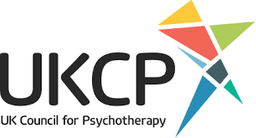One would think (or hope!) that communication in interpersonal relationships is getting easier these days given popular psychology books and various podcasts. However, this is far from the truth. Conflicted points of view, cultural and gender differences in modern society, can prevail without a meeting in the middle mindset. Increasing awareness of the nature of Neurodivergence in adults and children are all facets of the world that we live in today. The golden question is how we communicate to the best of our abilities. The word humility springs to my mind. The topic of humility is close to my heart. Both on a personal level and on a professional one.
If we are to grasp the concept of humility and all of its pervasive gifts. We might want to understand the obstacles that stand in our way.
For example, if we were to consider neurodivergence such as ADHDers and their inherent rejection sensitivity. This can be a huge stumbling block when admitting defeat over prevailing traits such as forgetfulness and disorganisation with all of its consequences, including leaving the keys in one’s car for anyone to drive off into the sunset or forgetting an important Anniversary. I can say this with affection because both my older children are neurodivergent.
Over familiarity in interpersonal relationships can breed (and does!) contempt for one another simply because we’ve taken each other for granted. The active listening skills tend to trail off after a number of years resulting in despondent lack of communication. My Counselling and Psychotherapy in St. Albans can lend a professional listening ear and some expert advice on the topic of good listening and communication skills whilst bearing humility in mind.
Good listening skills and humility are intrinsically linked. Humility allows individuals to prioritise understanding others’ perspectives and experiences, while good listening skills enable them to actively engage in conversations that foster deeper connections and understanding. The ability to put one’s own perspective views and feelings to one side whilst attentively listening to a significant other. This requires practice as it is a conscious skill and mindset. Once the contentious issue(s) have been bilaterally agreed upon then the healing can begin with reduced judgement and bias leading to curiosity and enquiry. The focus is on understanding and not trying to persuade the other person that they are wrong.
It’s a pertinent observation that we all could benefit from personal growth over the years. Yet, some of us are resistant to this for various psychological reasons that the individual is unable to fathom on their own. My Counselling and Psychotherapy in St. Albans approach to teaching good communication skills can offer a new lease of life. Your perspective lens on the world can change during the therapeutic process. If you feel that you could benefit from good communication and listening skills please contact me at Penny Glazebrook Counselling and Psychotherapy for an initial telephone consultation.


 by web@dmin
by web@dmin 22 April 2025
22 April 2025

